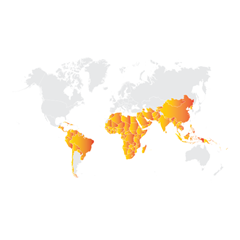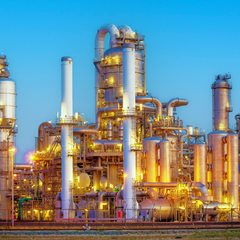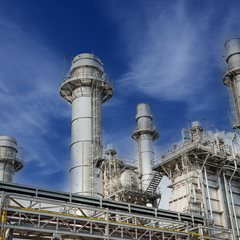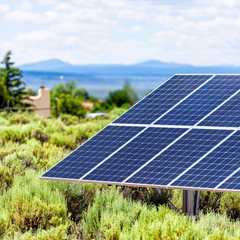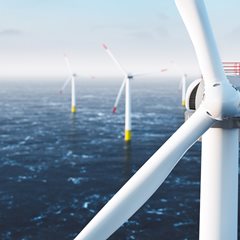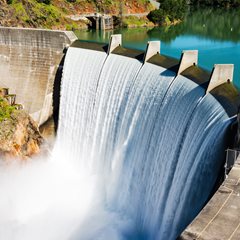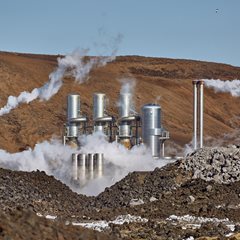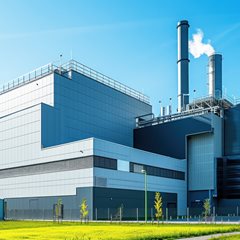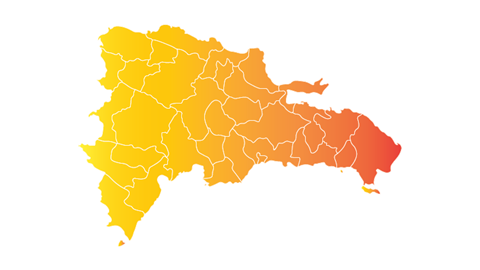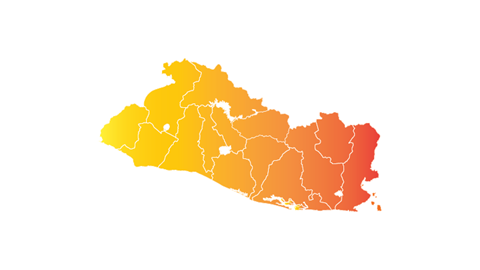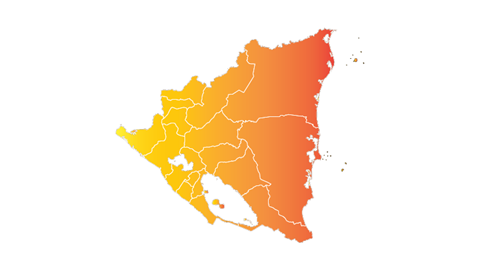Honduras
Critical minerals, policy, and the energy transition
The Energy Transition in Honduras
Honduras’ energy transition is shaped by its significant renewable energy resources and the strategic need to reduce fossil fuel dependence, enhance energy security, and expand electricity access. The country’s current energy mix is diversified, with over 50% of generation from renewables—primarily hydropower, alongside growing contributions from solar PV, wind, biomass, and geothermal energy. The National Energy Policy 2050 and the Electricity Law of 2014 provide the policy framework to promote renewable energy investment, distributed generation, and regional power integration via the Central American Electrical Interconnection System (SIEPAC). Honduras has positioned itself as one of the leading solar producers in Central America, with strong private sector participation in renewables. While the country possesses some mineral resources, including zinc, lead, gold, and silver, it does not produce lithium, cobalt, or rare earth elements, relying on imports for these critical materials required for battery storage and green technologies. Key challenges include social and environmental conflicts around hydropower and mining, natural disaster risks, and grid modernisation needs. However, Honduras’ renewable potential, supportive legislation, and regional integration efforts present clear opportunities to advance its energy transition, strengthen energy resilience, and support sustainable economic development.
Latest news and insights
Stay ahead in the energy transition with SFA (Oxford)’s cutting-edge insights into how energy diversification, ESG momentum, and regional integration are guiding Honduras’ pathway toward cleaner, more resilient growth.

Critical minerals could make the next outage permanent
18 November 2025 | Jamie Underwood, Ismet Soyocak
Cloudflare’s outage disrupted 20% of global web traffic, spotlighting the internet’s vulnerability to centralised systems, and the critical minerals powering them.
Honduras' international economic, trade, and security alliances
Hondura's energy and power mix
The journey of Central America and The Caribbean's critical minerals
Central America's progress in renewable energy is anchored on essential minerals like lithium, nickel, cobalt, PGMs, rare earths, and minor metals. These are crucial for advancing low carbon and future technologies, backed by policies promoting sustainable mining and innovation. This strategy emphasizes the significance of these minerals in paving the way toward a sustainable and energy-secure future. Learn how these critical minerals are fundamental to Central America's transition to sustainable energy.




Meet the Critical Minerals team
Trusted advice from a dedicated team of experts.

Henk de Hoop
Chief Executive Officer

Beresford Clarke
Managing Director: Technical & Research

Jamie Underwood
Principal Consultant

Dr Jenny Watts
Critical Minerals Technologies Expert

Ismet Soyocak
ESG & Critical Minerals Lead

Thomas Shann Mills
Senior Machine Learning Engineer

Rj Coetzee
Senior Market Analyst: Battery Materials and Technologies

Franklin Avery
Commodity Analyst

Shunjie Zhao (Tony)
Commodity Analyst: APAC

How can we help you?
SFA (Oxford) provides bespoke, independent intelligence on the strategic metal markets, specifically tailored to your needs. To find out more about what we can offer you, please contact us.


